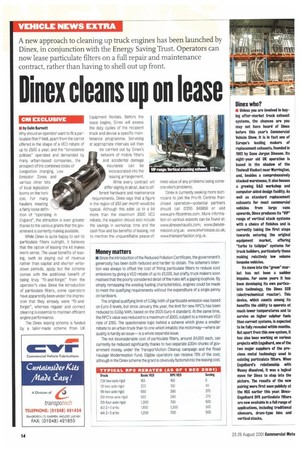Money matters
Page 14

If you've noticed an error in this article please click here to report it so we can fix it.
• Since the introduction of the Reduced Pollution Certificate, the government's generosity has been both reduced and harder to obtain. The scheme's intention was always to offset the cost of fitting particulate filters to reduce soot emissions by giving a VED rebate of up to £1,000, but crafty truck makers soon realised that the poorly considered detail of the rules left a gaping loophole. By simply remapping the existing fuelling characteristics, engines could be made to meet the qualifying requirements without the expenditure of a single penny on hardware.
The original qualifying limit of 0.08g/kWh of particulate emission was based on Euro-3 levels, but since January this year, the limit for new RPC's has been reduced to 0.03g/kWh, based on the 2005 Euro-4 standard. At the same time, the RPC's value was reduced to a maximum of £500, subject to a minimum VED rate of £160. The questionable logic behind a scheme which gives a smaller rebate to an urban truck than to one which inhabits the motorway—where air quality is hardly an issue— is a whole separate issue.
The not inconsiderable cost of particulate filters, around £4,000 each, can currently be reduced significantly thanks to two separate £30m chunks of government money, under the TransportAction Cleanup campaign and the Road Haulage Modernisation Fund. Eligible operators can receive 75% of the cost, although in the Dinex scheme the grant is obviously factored into the leasing cost.




























































































































